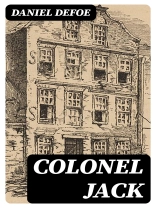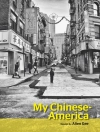In Daniel Defoe’s novel ‘Colonel Jack’, readers are transported to the 18th century as they follow the life of the titular character who experiences a series of adventures and misfortunes. Written in Defoe’s characteristic realistic and detailed style, the book delves into themes of morality, identity, and the impact of societal norms on an individual’s life choices. Defoe’s precise prose and vivid descriptions provide a rich literary context that immerses readers in the world of the novel, offering a glimpse into the social realities of the time. ‘Colonel Jack’ is a compelling narrative that keeps readers engaged through its intricate plot and complex characters. Daniel Defoe, a prolific writer and political pamphleteer, drew from his own experiences and observations of society to craft this novel. His deep understanding of human nature and societal dynamics informs the narrative, making ‘Colonel Jack’ not only a captivating story but also a reflection on the human condition. Readers looking for a thought-provoking and immersive literary experience would find ‘Colonel Jack’ a rewarding read.
Sobre el autor
Daniel Defoe (1660–1731) was an English writer, journalist, and spy who played a pivotal role in shaping literature during the early 18th century with his prolific output and innovative narrative styles. Defoe is best known for his enduring novel ‘Robinson Crusoe’ (1719), which is often credited with marking the beginning of realistic fiction as a literary genre. His literary career extended far beyond this seminal work; he authored more than three hundred works, including novels, pamphlets, and journals. One noteworthy novel that illustrates his narrative dexterity is ‘Colonel Jack’ (1722), which follows the life of an orphan who becomes a gentleman after a series of adventures and misadventures. The novel is a study of self-improvement and moral development, deftly showcasing Defoe’s fascination with the societal undercurrents of his time. His literary style is marked by vivid first-person narration, which gives a sense of authenticity to his characters and their experiences. Defoe’s works are a reflection of the complexities of 18th-century society, engaging with themes such as economics, religion, and the human condition. His influence extends to modern narratives, where his techniques of character development and plot construction are still revered. Defoe’s legacy persists as a founding figure in the development of the English novel.












